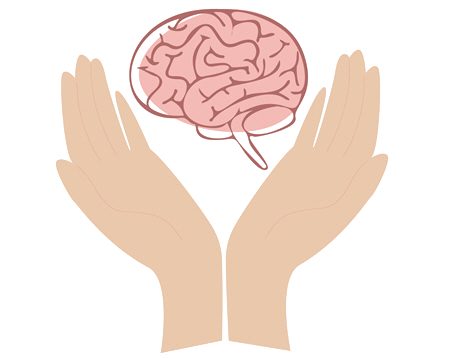 What’s most important…
What’s most important…
Your therapy is your unique and individualized journey.
Approachable: You have to feel comfortable sharing your story.
When you go for therapy, there are several things that you want to share with your therapist that you hesitate to share with others – your self-critical voice, negative emotions such as shame, guilt, fears of judgment from others, and inner secrets.
You want someone to listen to you and understand you. You want to share your untold story.
My therapy style includes compassion, nurturing, and empathy so that you’re comfortable sharing your story.
Therapeutic tools that resonate with your style…
You will find me working with client-centered interventions that resonate with you. I have heard this from clients: “My friend did CBT, and it worked for her. It should work for me, too.” My message to clients is that “one size does not fit all.” Together, we will use tools individualized for you. The more equipped you are with skills tailored to meet your needs, the more effective they will be for you.
Therapy has to be accessible to all individuals.
Sometimes, it helps to attend in person when there is a lack of private space and a risk to confidentiality. While other times, virtual therapy is more practical for individuals with multiple responsibilities to manage or a lack of time, etc. If you are looking for therapy, you can choose what works better.
This is your unique healing journey…
In my practice, I want to create a safe and trusting environment that will help you discuss your struggles comfortably, integrate elements in this process that are individualized to meet your needs specifically, and engage you in your therapy as an active participant.
 Here are some of the approaches we might use…
Here are some of the approaches we might use…
Cognitive Behavioural Therapy (CBT)
CBT is an evidence-based approach for treating anxiety, depression, panic disorders, sleep disturbances, mood disorders, health anxiety, body image issues, and more. It’s a practical, time-limited, goal-oriented, problem-focused approach used to address specific things that are distressing you. It emphasizes the importance of active collaboration and active participation between us.
It teaches you how to identify dysfunctional thoughts and beliefs, challenge them based on facts, and reframe them in a realistic perspective. It also teaches you concrete coping skills that can be practiced daily.
Cognitive Processing Therapy (CPT)
CPT is a structured treatment (generally 12 sessions) developed specifically for treating symptoms of post-traumatic stress disorder (PTSD) (resulting, for example, from intimate partner violence, rape, sexual assault, sexual abuse, accidents, etc.).
It is a cognitive-based program to help you challenge unhelpful patterns related to past trauma, focusing on safety, trust, self-esteem, power, control, and intimacy.
Dialectical Behavior Therapy (DBT)
Dialectical means “the existence of opposites.” In DBT, you’re taught to accept and validate your experiences and focus on change by managing your emotions and living in the moment.
Here are some skills you’ll learn:
- Distress tolerance: Coping with crises or distressful situations by accepting what it is as it is rather than how it should be
- Interpersonal effectiveness: Asserting your needs and wants and saying “no” to others while maintaining your self-respect and relationships with others
- Emotion regulation: Managing your feelings in a healthy way
- Mindfulness: Being in the present moment… and observing thoughts, emotions, and behaviors without judgment.
Feminist Therapy
Feminist therapy focuses on gender and the particular challenges and stressors women face due to bias, stereotyping, oppression, discrimination, and other factors creating psychological distress.
This therapeutic approach is utilized with minority/marginalized/oppressed groups, victims of domestic violence, and others to promote self-acceptance and empowerment.
Solution-Focused Therapy (SFT)
SFT is a short-term, strengths-based approach to psychotherapy based on solution-building. This approach focuses on your present problems, encouraging you to reflect on “exceptions” and times when things have been different for you. You’ll be taught to rely on your strengths to develop possible solutions.
Therapy for BIPOC (Black, Indigenous, People of colour) Communities
This approach acknowledges the unique factors such as historical oppression, stigma , cultural factors, and other systemic barriers such as unequal access to resources within these communities and their impact on an individual’s mental health and overall well being. The healing considers several factors such as offering culturally competent support, fostering resilience and empowerment, addressing intergenerational trauma, cultivating a sense of safety, strengthening connections with support networks and much more.
If you are willing to take the first step, I am ready to help. Send me a message below by filling out my contact form. Simply click the button below and I will be in touch to book a complimentary 15-minute consultation.
We can talk about the specific reasons why you want to see me, discuss my approaches further and how the overall process works, and determine whether we are a good fit to work together.

